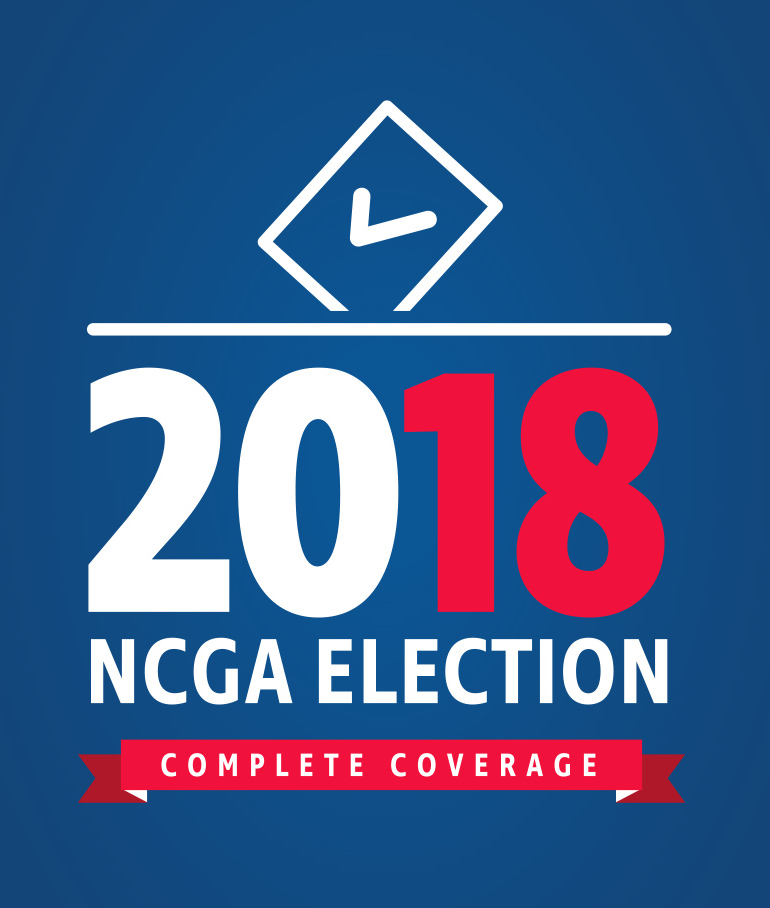 N.C. House District 1 (Bertie, Camden, Chowan, Perquimans, Tyrell, and Washington counties.)
N.C. House District 1 (Bertie, Camden, Chowan, Perquimans, Tyrell, and Washington counties.)
• Edward Goodwin, Republican. Occupation: Retired. Education: East Carolina University, bachelor’s degree. Career highlights: Former Chowan County commissioner, 21 years as Naval Criminal Investigative Service special agent, U.S. Air Force veteran.
• Ronald Wesson, Democrat (Currently two-term Bertie County commissioner). Occupation: Retired. Education: UNC-Chapel Hill bachelor’s degree in philosophy. Massachusetts Institute of Technology Sloan School of Business senior executive studies program. Career highlights: Former senior vice president, Dun & Bradstreet Corp.
The two candidates competing for the N.C. House District 1 open seat agree that more economic development and good-paying jobs are top priorities in the northeastern counties that make up the poor, largely rural district.
But Republican Edward Goodwin, a former state ferry director and former Chowan County commissioner, and Democrat Ronald Wesson, a Bertie County commissioner, strongly disagree about who’s better equipped to represent the district in Raleigh.
Wesson contends if Goodwin is elected, he would “go along to get along” to avoid getting on the wrong side of the Republican leadership in the General Assembly.
“If you don’t go along now, you are ostracized,” Wesson said. “We’ve seen many examples of that in recent years and there are [Republicans] who are actually voting against the interest of the citizens in their districts [to get along with Republican leaders]. We can’t afford to do that. ”
Goodwin took issue with Wesson’s claim that he would put party before district. He said he has no fear of being ostracized by the state’s GOP leadership, which he got to know well as ferry director, and during his unsuccessful 2012 bid to become Secretary of State.
“He’s way out there in left field,” Goodwin said of Wesson. “The bottom line is if they’re going to ostracize me, what would they do to him?”
Democrats comprise more than 54 percent of registered voters in House District 1. Yet the race is expected to be one of the more competitive in the state, according to ratings by the N.C. FreeEnterprise Foundation, which closely tracks state elections and voter behavior patterns.
This is the first general election since the shape of the district was redrawn in 2017 as a result of a federal lawsuit that challenged 28 legislative districts as racial gerrymanders.
The winner will find himself plowing uphill to ensure his constituent counties get attention from the General Assembly, and the resources needed to attract economic development and good jobs.
District 1 is currently represented by state Rep. Bob Steinburg, R-Chowan, who is running for the state Senate.
The consensus among most politicians from North Carolina’s economically depressed northeast is that the region needs stronger advocates in Raleigh.
“We need to get more focus here in the northeast,” Wesson said. “Most places east of [Interstate] 95 have not garnered very much attention in the legislature. The agenda seems to be more of an urban agenda, but areas like the northeast that are hurting, and really need jobs, and are losing population, we need to be investing in them.”
Goodwin believes an “inland ferry” system to bring tourists from North Carolina’s northern beaches to District 1 counties to golf and take part in dozens of cultural festivals could prove to be an economic boon for the region.
“Our asset here is water. And all of these waterfront towns and passenger ferry systems work all up and down the East Coast, but we don’t have them in North Carolina,” Goodwin said. “So, for this district, that would be critical for just about every one of the counties that has waterfront on a river where boats could come in.”
If elected, Goodwin said he would also work to commission a study to find out why so many residents in District 1 counties have such high rates of cancer, obesity, heart disease, diabetes, and high levels of cholesterol.
“I would like to get that resolved in my mind, and for the people, why do we have such extremely high, higher than the state average, of those five diseases,” Goodwin said.
Meanwhile, Wesson sees education as the way to economic prosperity for residents of District 1. He said students and teachers need modern facilities to compete with their counterparts in wealthier counties.
“Of the six counties I would represent, three are trying to build schools, and there’s no mechanism to do that within the state without them passing that burden on to their local taxpayers, and that’s almost impossible in a low-wealth community,” Wesson said.
“I have supported the governor’s [Gov. Roy Cooper] statewide bond referendum that would raise more than $2 billion, and especially help rural communities trying to rebuild or repair schools. It’s a big deal because a lot of our schools are crumbling,” Wesson said.
Goodwin acknowledged that many schools are in poor condition. But he favors a state study that would rate schools, then start repairing or rebuilding those in the worst condition.
Wesson also supports the expansion of Medicaid.
“I would vote for it for sure,” Wesson said. “I look at the states that have expanded Medicaid, and their costs are some of the lowest costs per-person, and their coverage is much larger than ours.”
But Goodwin sees Medicaid expansion as one of the biggest differences between him and his opponent, along with other such issues upon which state Democrats and Republicans traditionally disagree.
“He wants to expand and reform Medicaid,” Goodwin said “He wants higher taxes so we can pay for things to make everybody equal. If you’re doing that, you can’t be for jobs. I’m for all of the constitutional amendments and he is not.”